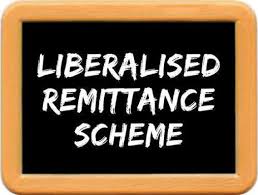The Foreign Exchange Management
(Cross Border Merger) Regulations, 2018
NO PRIOR APPROVAL IS REQUIRED FROM RBI IF CROSS BORDER MERGER IF
IT IS IN COMPLIANCE WITH THE FEMA 389/ 2018-RB dated 20 March, 2018.
Section 234 of the Companies Act,
2013 (notified with effect from 13 April, 2017) provided for the cross border
merger of Indian and foreign companies. Further, Companies (Compromises, Arrangements
and Amalgamation) Rules, 2016, as amended by the Companies (Compromises,
Arrangements and Amalgamation) Amendment Rules, 2017 (Co. Rules) were issued.
Section 234 provides for prior Reserve Bank of India (RBI) approval in case of
cross border merger.

On 26 April, 2017, the RBI issued
draft regulations relating to cross border mergers for comments from the
public. The Foreign Exchange Management (Cross Border Merger) Regulations, 2018
have now been notified vide notification no. FEMA 389/ 2018-RB dated 20 March,
2018 and are effective from the date of notification. As per the Regulations,
merger transactions in compliance with these regulations shall be deemed to
have been approved by RBI, and hence, no separate approval should be required.
In other cases, merger transactions should require prior RBI approval.
The Cross Border Regulations,
2018 Makes International Merger And Acquisition Transactions More Flexible
The notification of FEMA
regulations laying down the framework in relation to cross border mergers is an
extremely positive development, which should facilitate international merger
and acquisition transactions. Given that the guidelines deal with a new set of
transactions, they are likely to evolve based on practical experience, as may
be encountered in the due course of time.
The Salient Ingredients of the RBI Regulations are:
The Meaning of Inbound
Merger
The resulting company (or transferee) is in India in case of
inbound merger.
The Meaning of Outbound
Merger
The resulting company (or transferee) is a foreign company
in case of outbound merger.
Procedure to be followed
by an Indian Company
In an inbound merger,
the Indian company can issue securities in compliance of pricing guidelines and
within the limits of applicable sector cap and applicable regulations under
Foreign Management Act, 1999 (FEMA).
Compliances under ECB
Regulations
A period of two years is provided for compliance with
External Commercial Borrowings (ECB) Regulations in respect of loans,
borrowings or guarantees of the transferor company outside India.
Other Criteria
Further any asset not permitted to be acquired under FEMA
needs to be disposed off twenty-four months immediately after merger.
Deemed Branch Office
Offices of foreign
company will be deemed to be branch office of Indian company post-merger.
Outbound Merger
The resident Indian is allowed to hold securities issued on
the basis of fair market value and in terms of Liberalized Remittance Scheme
(LRS) of RBI in the case of an outbound merger.
Foreign company can hold assets
in India in subject to compliance of FEMA. Offices of Indian company post-merger
will be deemed to be branches of the foreign company post-merger.
VALUATION
Valuation of the
Indian company and the foreign company to be conducted by Valuers who are
members of a recognized professional body and further to be ensured that such
valuation is in accordance with internationally accepted principles on
accounting and valuation.
REPORTING TO RBI
The resultant company
and/or the companies involved in the cross border merger shall be required to
furnish reports as may be prescribed by RBI.
CERTIFICATION
A certificate from
the Managing Director/Whole Time Director and Company Secretary, if available,
of the company concerned ensuring compliance to these Regulations shall be
furnished along with the application to be made to the NCLT for approval of the
scheme.
Regulatory actions in
respect of Non-Compliances under FEMA
Regulatory actions,
if any, with respect to non-compliance, contravention under FEMA shall be
completed prior to merger by the companies involved in cross border merger.
Compensation
Compensation by the resultant company, to a holder of a
security of the Indian company or the foreign company, as the case may be, may
be paid, in accordance with the scheme sanctioned by the NCLT.












